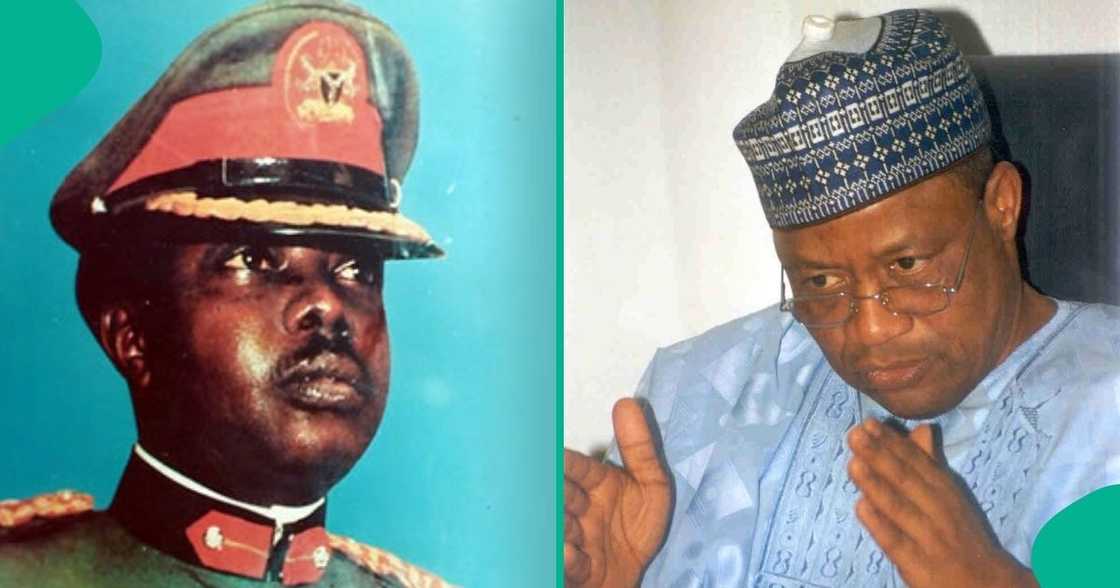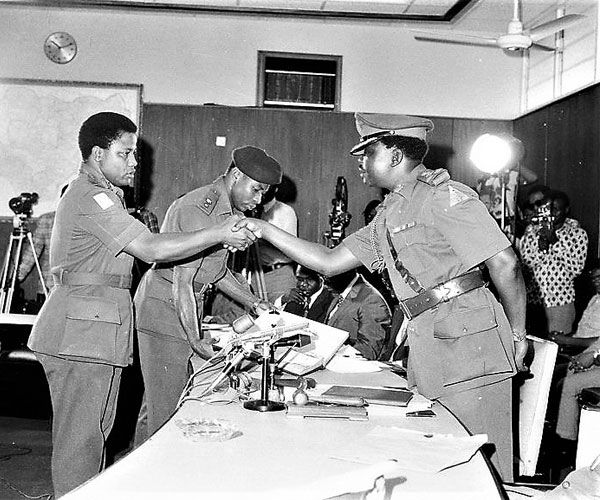- Babangida revealed events that led to the tragic assassination of Murtala Muhammed after refusing to accept a triumvirate leadership
- Once in power, Muhammed ordered sweeping retirements of top military officers and civil servants, including Vice-Admiral Joseph Wey and Major-General Adeyinka Adebayo
- The dissatisfaction from rejected officers and political tensions culminated in the February 13, 1976, coup led by Lt. Col. Buka Suka Dimka, resulting in Murtala’s assassination
Former Military President, General Ibrahim Badamasi Babangida (IBB), has disclosed details on the events that led to the assassination of Nigeria’s former Head of State, General Murtala Ramat Muhammed, on February 13, 1976.
Babangida, in his newly launched autobiography, A Journey in Service, revealed that Muhammed’s refusal to accept a triumvirate power-sharing arrangement after seizing power in 1975 set the stage for the conspiracy that led to his death.

Murtala’s rise to power and the rejected power-sharing deal
According to Babangida, after the coup that removed General Yakubu Gowon in 1975, a group of young officers expected Murtala Muhammed to run a ‘collective’ government alongside Brigadiers Olusegun Obasanjo and Theophilus Danjuma.
Read also:Discovering The World Of Mkpoint Movies A Cinematic Journey
However, Muhammed outrightly rejected the proposal.
Babangida recounted:
"One of the accusations against General Gowon was that he ran governance like a one-man show. So, we—the younger officers—insisted that Murtala should lead as first among equals. But when this proposal was made, his response was thunderous. He rejected it outright."
He explained that despite hours of negotiations late into the night, Muhammed stood firm in his decision to rule independently.
"Finally, Murtala Muhammed agreed to be head of state but insisted that he would not be beholden to anyone as head of state," Babangida wrote.
Mass sackings and political tensions
Once in power, Murtala Muhammed wasted no time in restructuring the military and public service, The Cable reported.
He ordered the mass retirement of senior military officers and top civil servants.
Among those retired were: Vice-Admiral Joseph Wey, Chief of Staff, Supreme Headquarters; Major-General David Ejoor, Deputy Chief of Staff (Army); Major-General Adeyinka Adebayo, a former governor of the Western Region.
Read also:Unraveling The Mystery How Old Is Paul Walker A Tribute To A Timeless Star
Babangida noted that this sweeping purge created discontent among affected officers and civil servants, many of whom felt they were unfairly targeted, Vanguard reported.
"Looking back, we probably overdid the retirements. The intention was good, but in the process, some innocent officers and civil servants became victims," he admitted.
The coup that ended Murtala’s rule

The growing resentment culminated in the bloody coup of February 13, 1976, led by Lt. Col. Buka Suka Dimka.
The coup plotters ambushed Murtala’s convoy in Lagos, gunning him down in broad daylight.
According to Babangida:
"The conspiracy against Murtala started the moment he refused the power-sharing deal. His leadership style, the retirements, and his bold policies created enemies. Eventually, it cost him his life."
Murtala’s legacy and Nigeria’s recovery
Despite his short tenure, Murtala Muhammed is remembered for his decisive leadership, rapid policy changes, and bold vision for Nigeria.
Babangida acknowledged his popularity but also highlighted the long-term effects of his mass dismissals.
"He won the hearts of Nigerians, but the country is yet to fully recover from the consequences of some of those abrupt retirements," Babangida reflected.
Falana hits Babangida
Earlier, Legit.ng reported that Femi Falana, a senior advocate of Nigeria (SAN), recounted his ordeal under former military president, General Babangida’s regime.
Falana said Babangida detained him and other young Nigerians for speaking up against his government, adding that Babangida deliberately killed his best man, Major-General Mamman Jiya Vatsa—contrary to the claim that the slain soldier was involved in a coup.


